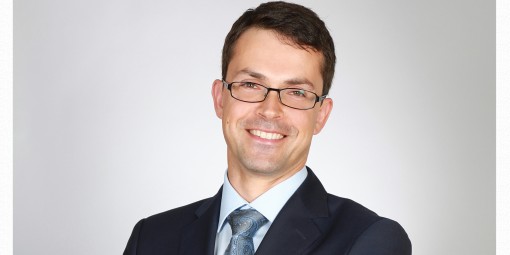
Kaspars Novicāns
leading partner, sworn advocate
Kaspars Novicāns began his school years in Auce, then acquired a musical education studying at Jāzeps Mediņš Secondary Music School, Jelgava Music College and the Latvian Academy of Music. The precision and determination obtained while playing the trumpet and learning conducting were later useful in legal studies and in the advocate’s work. Kaspars acquired his lawyer’s qualification from the University of Latvia where he completed a Master’s study programme on Civil Law Sciences. He is fluent in Latvian, English and Russian.
From 2002 to 2007 Kaspars Novicāns gained experience working as a lawyer at AS “NORVIK BANKA”; and from 2007 to 2012, he worked as an individually practising sworn advocate. Since 2002 Kaspars has been putting his knowledge and experience to use at the law office NOVIUS as an insolvency proceedings administrator, and since 2011 – as an advocate and partner.
Kaspars Novicāns is an internationally recognised Certified Anti-Money Laundering Specialist (CAMS) according to the Certificate issued in the US. Kaspars is a member of the Association of Certified Anti-Money Laundering Specialists(ACAMS) and regularly participates in expert events dedicated to the prevention of laundering proceeds from criminal activities and terrorism financing.
Since April 2012 Kaspars Novicāns has been working at the Insolvency Law Development Committee created by the Latvian Association of Certified Insolvency Proceedings Administrators and regularly attends the Ministry of Justice work group meetings and the Economic, Agricultural, Environmental and Regional Policy Committee of the Saeima of the Republic of Latvia work group sessions where prospective amendments to the Insolvency Law are reviewed. This allows Kaspars to be informed about current affairs and actively follow the decision-making process.
Kaspars Novicāns has also participated in the training of future administrators organised by the Training Centre of the Latvian Association of Certified Insolvency Proceedings Administrators, giving lectures on topics such as special features of the insolvency process of individual merchants and partnerships and agricultural producers. Kaspars is also a member of the Latvian Collegium of Sworn Advocates and the Latvian Association of Certified Insolvency Proceedings Administrators.
In his free time, which he mostly spends with his family, Kaspars Novicāns is a real mountain climbing, alpine skiing and kiteboarding enthusiast.
Publications of Kaspars Novicāns:
1) Offer by Notaries Public will Inevitably Complicate Real Estate Transactions. Dienas Bizness, 12 April 2016;
2) Reform of the Status of Administrators of Insolvency Proceedings. Lawyer’s Word, 30 September 2014;
3) Eclectism of Insolvency Laws. Lawyer’s Word, 27 March 2012;
4) How to Struggle With Opening of Ungrounded Insolvency Proceedings. Bilance. 16 March 2012
5) Indications of Insolvency Proceedings of a Legal Person – to Amend or Interpret. Lawyer’s Word, 21 February 2012;
6) Legal Protection Proceedings – a Way Out of Deadlock. Forbes, June 2011, p. 86-88.
7) Restructuration Processes. Forbes, February 2011, p. 15.
Informējam Jūs, ka šajā tīmekļa vietnē tiek izmantotas sīkdatnes (cookies), lai iegūtu anonimizētu pārskatu par lietotāju aktivitātēm vietnē.
This site is using cookies to collect anonymised statistics about the user activity on the site.
Vairāk informācijas / More information
Sīkdatne jeb sīkfails (angļu: cookie — burt. 'cepums'), ir tīmekļa servera nosūtīta neliela teksta virkne klientam (parasti tīmekļa pārlūkprogrammai), kura tiek saglabāta lietotāja datorā kā parasta datne. Ar tās palīdzību serveris var identificēt lietotāju, pārbaudot klienta atsūtīto sīkdatni. Šis mehānisms tika ieviests tādēļ, ka pats HTTP protokols neuztur savienojuma stāvokli, un klienta katru jaunu pieprasījumu serveris uzskata par jaunu klientu.
Sīkdatņu mehānismu apraksta RFC 2965 (HTTP State Management Mechanism), kas iznāca 2000. gadā un nomainīja RFC 2109.
Visbiežāk sīkdatnes izmanto lietotāju autentifikācijai (lietotājam ievadot savu lietotājvārdu un paroli, serveris nosūta uz lietotāja datora unikālu teksta virkni, pēc kā vēlāk var noteikt, ka lietotājs ir pieslēdzies sistēmai), sesijas uzturēšanai, kā arī specifiskas informācijas saglabāšanai par lietotāju. Izmantojot sīkdatnes, lietotājs veido tīmekļa vietni atbilstoši savām vēlmēm un interesēm.
Kopš sīkdatņu ieviešanas daudzi interneta lietotāji ir noraizējušies par personiskās dzīves izsekošanu, jo ar sīkdatnēm var izsekot lietotāja veiktās darbības un ieradumus, kad tas veic tīmekļa lapu pārlūkošanu. Sakarā ar to vairākās valstīs (ASV, Eiropas Savienībā) ir pieņemti likumi, kas regulē sīkdatņu lietošanu. Bez tam sīkdatņu negatīvs aspekts ir slikta drošība, jo tās ne vienmēr var precīzi identificēt lietotāju (ja datoru izmanto vairāki lietotāji), tās var ļaunprātīgi pārtvert un izmainīt.
Sīkdatnes ir iespējams arī nobloķēt, bet, tiklīdz tas ir izdarīts, var rasties problēmas, jo var nestrādāt kāda no tīmekļa vietnes piedāvātajām funkcijām vai pat liegta piekļuve pie tās. Dažādām pārlūkprogrammām ir atšķirīgi veidi, kā nobloķēt sīkdatnes. Sīkdatnes, kā jebkuru failu, ir iespējams arī izdzēst, bet tas nozīmē, ka uz sīkdatņu pamata veiktie iestatījumi netiks saglabāti.
An HTTP cookie (also called web cookie, Internet cookie, browser cookie, or simply cookie) is a small piece of data sent from a website and stored on the user's computer by the user's web browser while the user is browsing. Cookies were designed to be a reliable mechanism for websites to remember stateful information (such as items added in the shopping cart in an online store) or to record the user's browsing activity (including clicking particular buttons, logging in, or recording which pages were visited in the past). They can also be used to remember arbitrary pieces of information that the user previously entered into form fields such as names, addresses, passwords, and credit card numbers.
